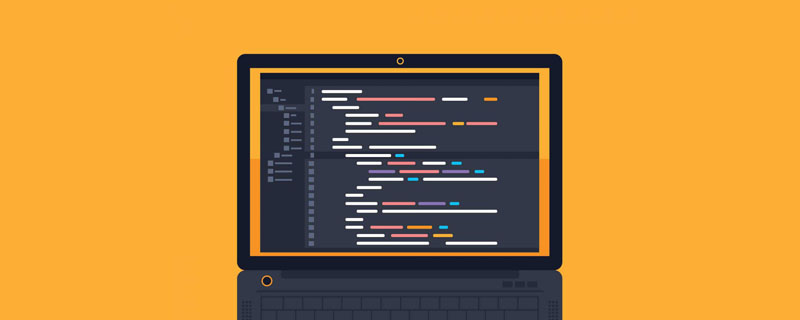Recently, when I was entering form data on a website, I filled in one column and clicked the [Tab] key to move to the next column; when I looked up, I was surprised to find that the cursor jumped to another column at the bottom of the page. middle. I used my mouse to move the cursor into the correct text field, but soon the [Tab] key problem started again. This situation made me want to take a look at page design and how the tabIndex property aids navigation via the keyboard.
Access elements via the [Tab] key
The HTML DOM tabIndex attribute allows you to set or return the tab order of an HTML element. IE
4.0 is the first to support this feature. Initially, only elements that are truly accessible via the [Tab] key are supported, such as input fields, links, etc. Today, all web browsers support this feature, as well as all elements displayed on the page. Before applying it, you can double-click the HTML specification to ensure that an element supports this feature.
tabIndex feature
Applying the tabIndex feature is a simple and straightforward process. For example, the following HTML source code assigns the tabIndex value 1 to the input field, which is the first column in the tab order:
If the [Tab] key is initially selected, web pages with this input field will move the cursor to the firstName field.
When assigning a value to the tabIndex attribute, you should pay attention to several issues. Here are a few assignment rules: Elements with a tabIndex of 0 are sorted according to their source code (or default page behavior).
A tabIndex value greater than 0 sets its tab order. All elements with a positive tabIndex value appear before all elements with a 0 tabIndex value.
If you make a mistake and assign the same tabIndex to multiple elements, like other elements, they will be processed with a 0 value tabIndex.
Assign tabIndex to -1, then this element will be ignored when using the [Tab] key. Note: If a value of -1 is used, the onfocus and onblur events are still activated.
The value of tabIndex can be any number between 0 and 32767.
The sample HTML code in Listing A assigns a tabIndex value to each item on the page. Input fields and DIV tags include the tabIndex attribute, allowing users to peruse page elements using the keyboard. (The DIV tag doesn't provide much information about getting focus, but I wanted to illustrate the use of tabIndex with non-input elements.) Buttons with a value of -1 are assigned a value, and they are ignored when the [Tab] key is applied. .
When the input element is full (reaches the maximum length), you can add a small JavaScript script to implement the automatic positioning function. This is a basic function, let’s see how the script implements its functionality:
function checkLen(x,y) {
if
(y.length==x.maxLength) {
var next=x.tabIndex
if (next document.getElementById("frmTest").length)
{
document.getElementById("frmTest").elements[next-1].focus()
} }
}
The function accepts two variables. The first variable is the input field, and the second variable contains the value of the field. And compare the length of the column to the maximum acceptable length of the column. If they are equal (i.e. the column is full), the value of tabIndex is read from the column; if the value is less than the maximum length, the focus is moved to the next column.
This function assigns a value to the onkeyup event of each column, so this function must be called every time a value is entered in the column to check whether it reaches the maximum length. If the maximum value is reached, the cursor moves to the next column in tab order. The source code in Listing B adds this function to the example above.
Improve accessibility
Specifying tabIndex for elements can help users who often use keyboards more conveniently access the network interface; non-standard users such as PDAs, mobile phones, and screen readers used by disabled people can also Benefited from. Anything that extends the capabilities of an application is beneficial.
A piece of cake You may spend a lot of time designing web forms so that they are visually appealing and can be processed correctly by back-end server components. However, you may have neglected to test it with non-standard technologies or browsers. A typical example is to give up the mouse and rely on the keyboard to navigate the form. The HTML standard includes the tabIndex attribute, which allows you to control which items are accessed via the [Tab] key.
The above is the content of HTML tutorial: using tabIndex to easily realize web navigation. For more related content, please pay attention to the PHP Chinese website (www.php.cn)!
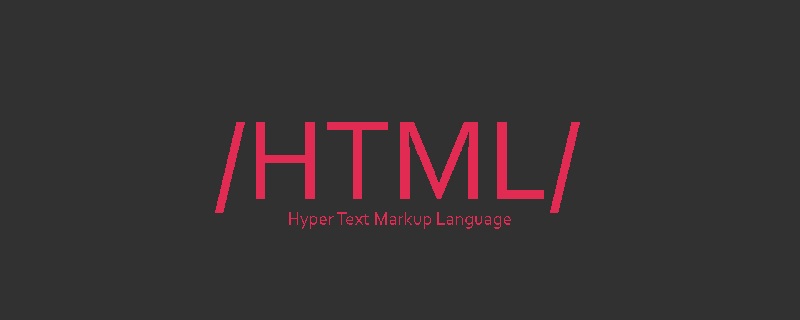 HTML超文本标记语言--超在那里?(文档分析)Aug 02, 2022 pm 06:04 PM
HTML超文本标记语言--超在那里?(文档分析)Aug 02, 2022 pm 06:04 PM本篇文章带大家了解一下HTML(超文本标记语言),介绍一下HTML的本质,HTML文档的结构、HTML文档的基本标签和图像标签、列表、表格标签、媒体元素、表单,希望对大家有所帮助!
 html和css算编程语言吗Sep 21, 2022 pm 04:09 PM
html和css算编程语言吗Sep 21, 2022 pm 04:09 PM不算。html是一种用来告知浏览器如何组织页面的标记语言,而CSS是一种用来表现HTML或XML等文件样式的样式设计语言;html和css不具备很强的逻辑性和流程控制功能,缺乏灵活性,且html和css不能按照人类的设计对一件工作进行重复的循环,直至得到让人类满意的答案。
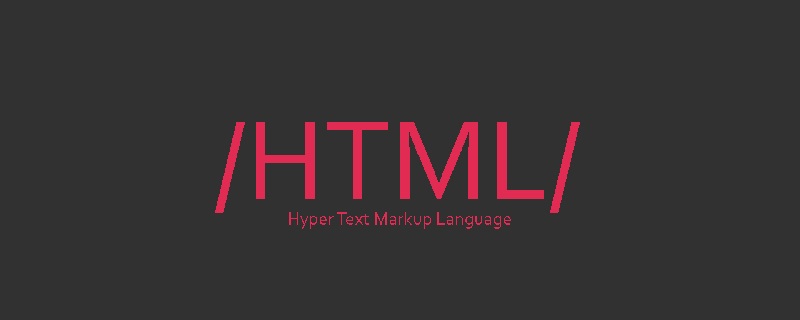 web前端笔试题库之HTML篇Apr 21, 2022 am 11:56 AM
web前端笔试题库之HTML篇Apr 21, 2022 am 11:56 AM总结了一些web前端面试(笔试)题分享给大家,本篇文章就先给大家分享HTML部分的笔试题(附答案),大家可以自己做做,看看能答对几个!
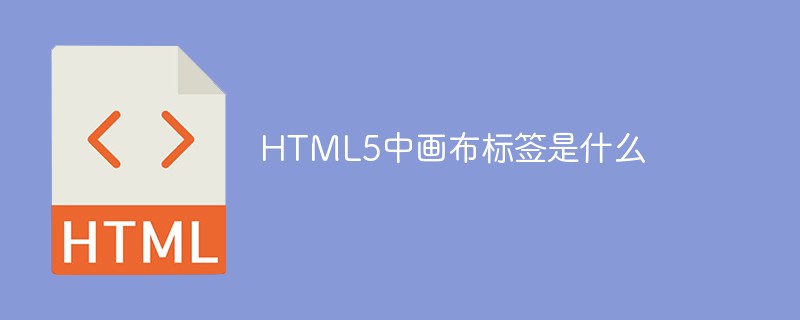 HTML5中画布标签是什么May 18, 2022 pm 04:55 PM
HTML5中画布标签是什么May 18, 2022 pm 04:55 PMHTML5中画布标签是“<canvas>”。canvas标签用于图形的绘制,它只是一个矩形的图形容器,绘制图形必须通过脚本(通常是JavaScript)来完成;开发者可利用多种js方法来在canvas中绘制路径、盒、圆、字符以及添加图像等。
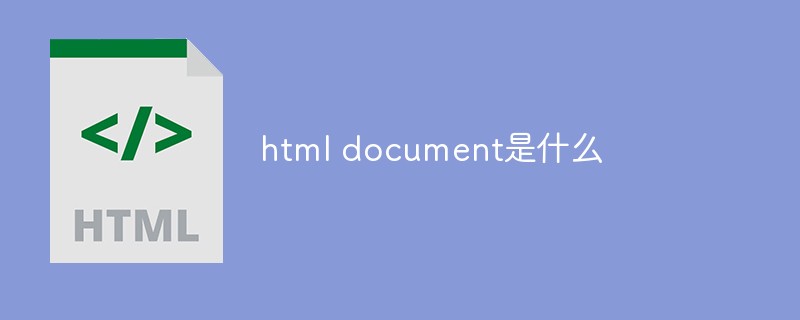 html中document是什么Jun 17, 2022 pm 04:18 PM
html中document是什么Jun 17, 2022 pm 04:18 PM在html中,document是文档对象的意思,代表浏览器窗口的文档;document对象是window对象的子对象,所以可通过“window.document”属性对其进行访问,每个载入浏览器的HTML文档都会成为Document对象。
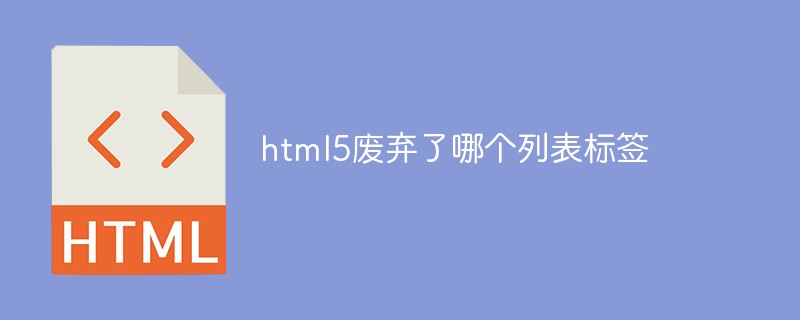 html5废弃了哪个列表标签Jun 01, 2022 pm 06:32 PM
html5废弃了哪个列表标签Jun 01, 2022 pm 06:32 PMhtml5废弃了dir列表标签。dir标签被用来定义目录列表,一般和li标签配合使用,在dir标签对中通过li标签来设置列表项,语法“<dir><li>列表项值</li>...</dir>”。HTML5已经不支持dir,可使用ul标签取代。
 Html5怎么取消td边框May 18, 2022 pm 06:57 PM
Html5怎么取消td边框May 18, 2022 pm 06:57 PM3种取消方法:1、给td元素添加“border:none”无边框样式即可,语法“td{border:none}”。2、给td元素添加“border:0”样式,语法“td{border:0;}”,将td边框的宽度设置为0即可。3、给td元素添加“border:transparent”样式,语法“td{border:transparent;}”,将td边框的颜色设置为透明即可。


Hot AI Tools

Undresser.AI Undress
AI-powered app for creating realistic nude photos

AI Clothes Remover
Online AI tool for removing clothes from photos.

Undress AI Tool
Undress images for free

Clothoff.io
AI clothes remover

AI Hentai Generator
Generate AI Hentai for free.

Hot Article

Hot Tools

SAP NetWeaver Server Adapter for Eclipse
Integrate Eclipse with SAP NetWeaver application server.

PhpStorm Mac version
The latest (2018.2.1) professional PHP integrated development tool

DVWA
Damn Vulnerable Web App (DVWA) is a PHP/MySQL web application that is very vulnerable. Its main goals are to be an aid for security professionals to test their skills and tools in a legal environment, to help web developers better understand the process of securing web applications, and to help teachers/students teach/learn in a classroom environment Web application security. The goal of DVWA is to practice some of the most common web vulnerabilities through a simple and straightforward interface, with varying degrees of difficulty. Please note that this software

SublimeText3 English version
Recommended: Win version, supports code prompts!

ZendStudio 13.5.1 Mac
Powerful PHP integrated development environment





